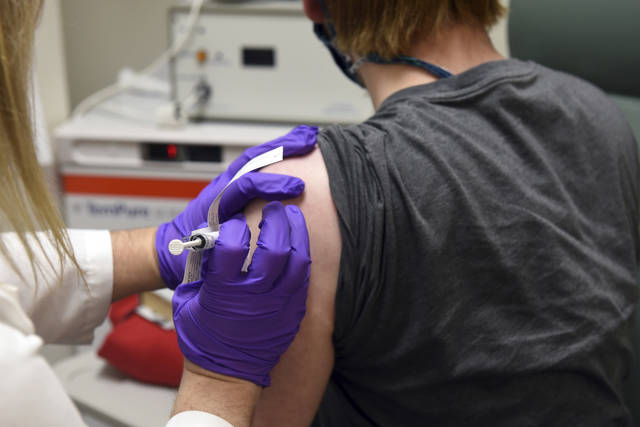The vaccines are coming.
In the last two weeks, two major pharmaceutical companies have made announcements about their covid-19 vaccines. Pfizer’s testing is showing a 90% efficacy. Moderna’s is 94.5%. Both are in the homestretch of a race with a huge jackpot — potentially millions of lives in America alone and a way back to normal for everything from education to the economy.
Some estimates say at least one of the vaccines — both of which are already in production in anticipation of Food and Drug Administration approval — could be available as soon as December. The first recipients will be heath care and other front-line workers; the general public will likely be eligible by late spring.
That is amazing. That is a testament to what can happen when you marry science to necessity and take roadblocks out of the way.
But it’s important to realize that the start of vaccination is not the end of the coronavirus pandemic.
It just means that the road has straightened out. Instead of the twists and turns and blind hairpin curves of a disease that was unknown a year ago, the race to the pandemic’s end is now on a flat track.
It has months of data from the millions who have been diagnosed and the more than 250,000 Americans who have died. There are better ideas about what works and what doesn’t when it comes to treatment.
Vaccination will be one more way to speed the way. The issue is that we have lots of diseases that can cause problems for which we already have vaccines.
Measles, for example, is something we have had a handle on for years, but which has made a troubling resurgence in recent years because of a vaccine resistance movement. That groundswell is so potent that the World Health Organization has named it one of the biggest global threats, ironically alongside a pandemic.
“It could take a significant amount of time to immunize everyone in Pennsylvania. I anticipate that we’re going to be wearing masks in 2021 — well into and maybe until the end of 2021,” said Pennsylvania Secretary of Health Dr. Rachel Levine.
We can’t just have a vaccine. People have to accept a vaccine. We can’t just take a shot. It has to have time to work. That’s multiple doses as well as time to develop in the system. It isn’t as simple as breaking through the finish line.
“We need to add vaccination to the existing physical measures, being careful, and hygiene — if we add that … to the vaccine, I think we will go a long way toward getting rid of this virus,” said WHO’s Dr. Mike Ryan, executive director of the health emergencies program, in a question-and- answer session.
What that means is that this was never a marathon. It’s a relay race, with different groups responsible for their own legs of the run. Science had its job to do and so did hospitals. The state had to do things and so did the federal government. Corporations did, too.
But the final sprint requires the people to take the baton and do their part, too.








